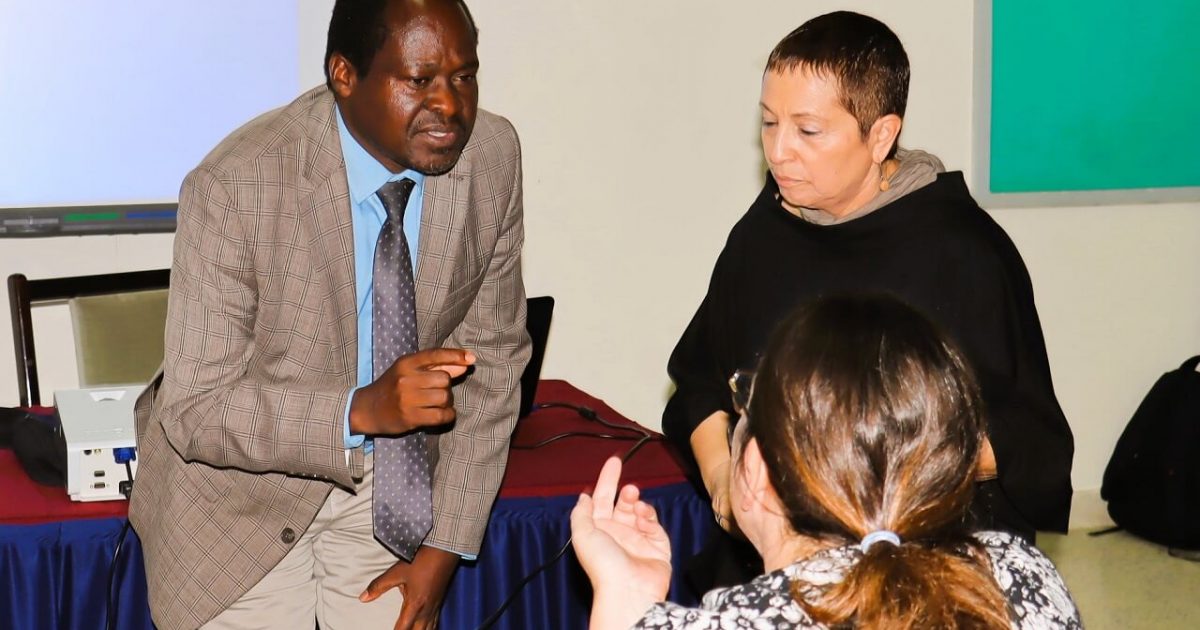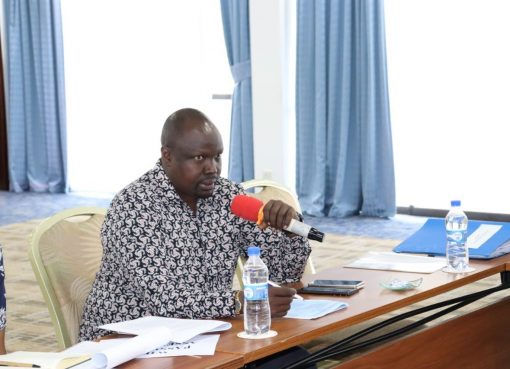Egerton University has sent 40 students to Israel to study advanced agriculture and water technology to gain expertise that will help address food insecurity in the country.
The University’s Vice chancellor, Prof. Isaac Kibwage said the students would travel to Israel for an intensive training programme for 11 months in different state-of-the-art universities and colleges in Israel while studying at modern basic farms.
According to the Vice Chancellor, the students would also be trained in various branches of agriculture such as animal husbandry, crop production and aquaculture under the agricultural programme dubbed Arava International Centre for Agriculture Training (AICAT).
Once they graduate, the VC said the graduates would be expected to come up with agricultural project proposals to be implemented in Nakuru and neighbouring counties.
“We are optimistic that they will use the technological skills gained in Israel to make a difference in our country,” said Prof. Kibwage.
The students, 28 men and 12 women, will be studying at the AICAT Campus, located in Mercaz Sapir, a region in close proximity to 15 surrounding agricultural communities which Prof. Kibwage said boasts an array of farms and homesteads, ranging from field crops and plantations to dairy farms, barns and cowsheds.
In early 2016, the governments of Kenya and Israel signed an agreement dubbed “The Jerusalem Declaration” or the “Declaration on Collaboration in Water and Irrigation” that would see fresh graduates from institutions of higher learning attend an 11-month practical training course in Israel.
The agreement indicated that successful students for the free-to-undertake programme are subsequently awarded air tickets in the form of loans which they later repay during or after the internship which involves hands-on training. They are required to take part in on-farm production activities during the training.
The objective of the internship, which takes place in the Arava region, in the south of Israel, in the desert, is to expose the students to the sophisticated agricultural technologies at the Arava.
Speaking when he and AICAT Director Mrs. Hanni Arnon signed a Memorandum of Understanding on behalf of the two institutions, the Vice Chancellor indicated that the students would further undergo intensive training in crop production, use of hybrid seeds and efficient water use, water resources, wastewater treatment, recycling and reuse, and irrigation with emphasis on advanced efficient water use technologies.
“We appreciate the fact that the Israeli government has given our students an opportunity to study in their country. We are optimistic that this continuous collaboration will help our students acquire knowledge and skills to tackle the challenges of food security in the country,” said Prof. Kibwage.
According to the Vice Chancellor, the move would enhance the fulfilment of the government’s agenda specifically ensuring there is enough food in the country.
He observed that food security and nutrition were two of the key agendas of the government with water being an enabler.
Egerton University Director Board of Undergraduate Studies (BUGS) Prof. Micah Chepchieng expressed optimism that the training would open new horizons for the students and provide them with invaluable exposure to cutting-edge agricultural practises in Israel.
Prof. Chepchieng underscored the University’s commitment to fostering a culture of academic excellence and experiential learning.
“Collaborations like the one with AICAT are instrumental in enriching our students academic journeys and preparing them to become future leaders in the agricultural sector. We have every confidence that the selected students will make the most of this opportunity and return with valuable insights that will contribute to the development of the agricultural industry in Kenya,” he added.
In his remarks, Director of Marketing and Resource Mobilisation Prof. Paul Kimurto observed that the training opportunity not only represented a chance to gain specialised knowledge but also to build cross-cultural understanding and foster international friendships.
Prof. Kimurto observed, “We hope that this experience will be transformative and inspire them to become ambassadors of change in their respective communities. Upon their return, the University will engage with these students and learn from their experiences abroad. This is to tap and manage the knowledge they bring back for the enhancement of the University’s academic programme.
He said the country was no longer going to depend on rain to produce sufficient food but would look for alternative solutions by tapping into technology to help the country tackle drought challenges in the region.
Director Mrs. Arnon said Israel had opened an opportunity for more than 1,000 Kenyan students to study agriculture.
“We are happy that the previous batch of Kenyan students who studied in Israel showed hard work, mingled freely with farmers and maintained high discipline. We are proud to invite more Kenyan students to train in Israel so that they can make a difference in their own country by tackling food security in the region,” Ms. Arnon said.
Agriculture in the Arava is the spearhead of modern and sophisticated agriculture in Israel, using modern high technologies in the most inhospitable conditions of the desert.
Despite Israel being a dry land, it has achieved notable milestones in agriculture and through modern technology, it has been able to produce surplus food for its population.
By Esther Mwangi and Sam Karanja





